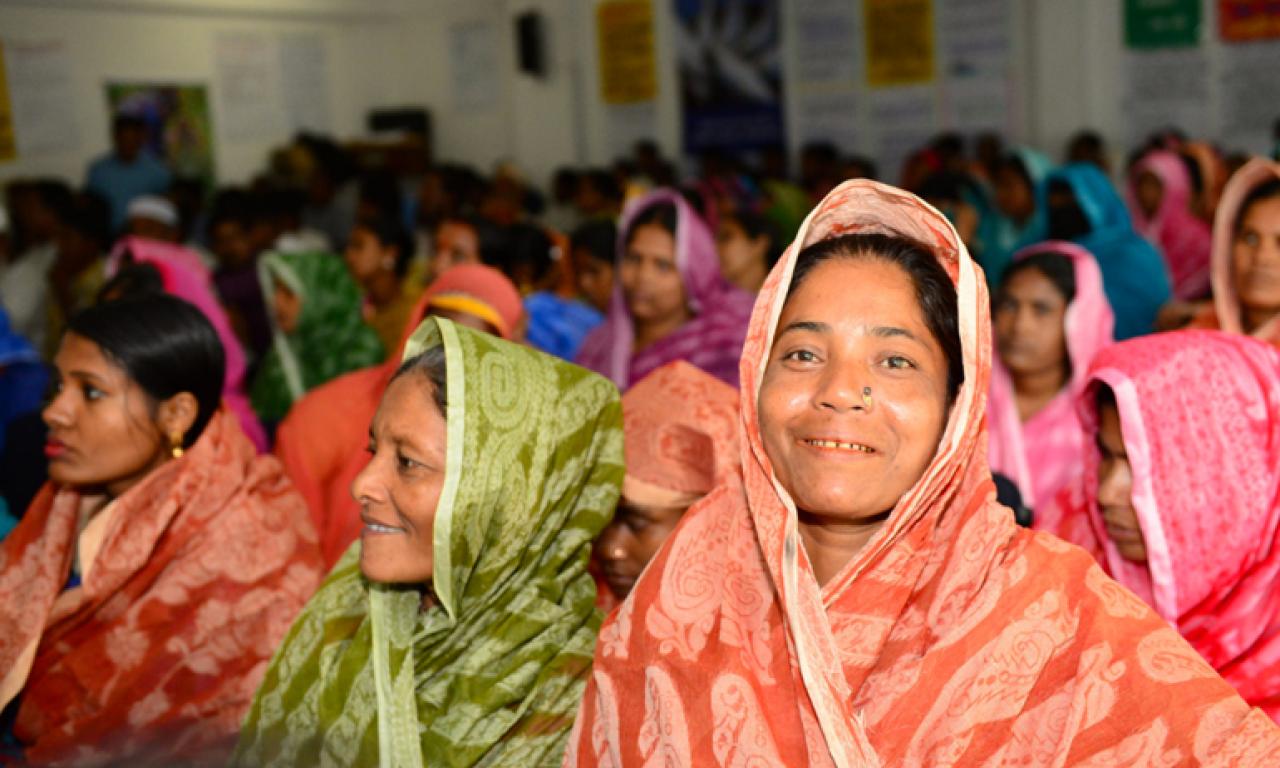
In Bangladesh, fishing has long been seen as ‘men’s work’. It’s a social perception that ignores the vital contribution of women to fisheries—30 percent of women in rural and coastal areas are directly or indirectly engaged in small-scale fisheries—and whose increased involvement in fisheries management could lead to increased household well-being.
Recommended publications
- Transforming aquatic agricultural systems towards gender equality: A five country review
- Women-led fisheries management – A case study from Bangladesh
In Bangladesh, fishing has long been seen as ‘men’s work’. It’s a social perception that ignores the vital contribution of women to fisheries—30 percent of women in rural and coastal areas are directly or indirectly engaged in small-scale fisheries—and whose increased involvement in fisheries management could lead to increased household well-being.
Catalyzing the potential benefit from women’s involvement in management is the focus of the upcoming 2nd Fisher Women Congress in Bhola, Bangladesh, on 11 March 2017.
Specifically, the congress aims to inspire and motivate women to play a stronger role in conserving hilsa, Bangladesh’s national fish, and maintaining biodiversity in river ecosystems. The congress forms part of the USAID-funded Enhanced Coastal Fisheries in Bangladesh (ECOFISH-BD) project implemented by WorldFish and the Department of Fisheries.
Involving nearly 70 women and one man from each village in the coastal district of Bhola, the theme for the event is “Be Bold For Change”. This draws on the theme for International Women’s Day 2017 (8 March).
The one-day event will highlight women’s achievements in different aspects of fisheries management and livelihoods, and encourage men, as participants, to be more supportive of women’s involvement in fisheries management.
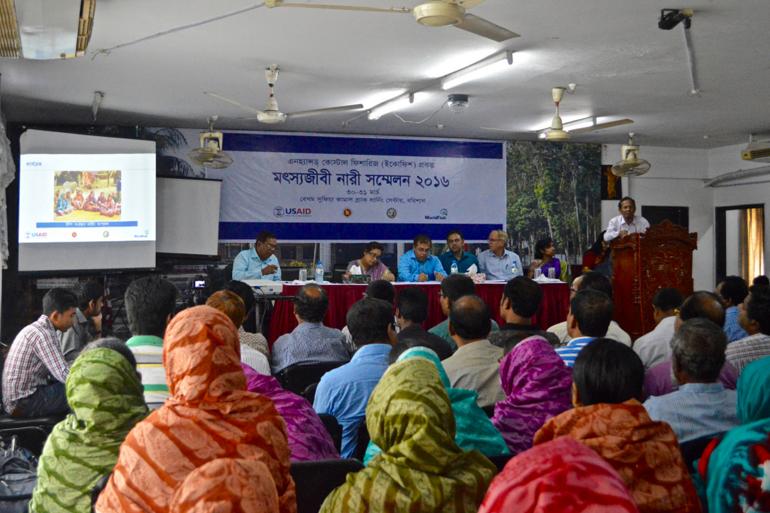
Often, women in fishing villages in rural Bangladesh say little in community decisions around fisheries co-management. As their work is mostly in the background, they are not recognized by the communities—or sometimes even themselves—as important to decision making, explains Safina Naznin, Gender and Environmental Specialist for ECOFISH-BD.
“When there is a large catch, women visibly participate in sorting and grading different sizes and species of fishes. But mostly, women do a lot of the unpaid work such as catching fry, collecting snails for feeding ducks, and doing nearshore fishing using hook and line, so their work is often invisible.”
“Because of this fishing continues to be seen as men’s work and women are excluded from community-level decision making processes,” she says.
Compounding the problem, many women in fishing communities are illiterate, which restricts their access to income generating opportunities. Women also face a number of social and religious norm-based barriers, including some that reinforce women having primary responsibility for caregiving, and limit the time for and acceptability of women’s movements and interactions beyond the home. This can make it hard for women to attend community meetings and trainings.
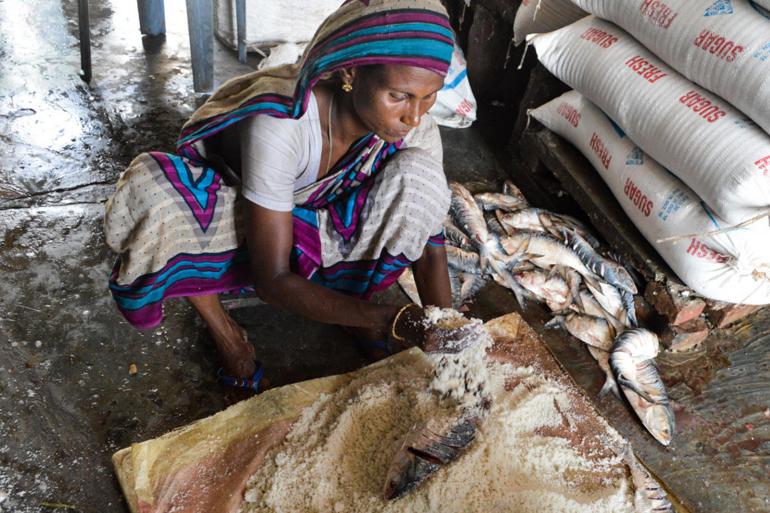
Helping fisher women to raise their voice is central to the ECOFISH-BD project’s mission to improve the resilience of the Meghna River ecosystem and strengthen the livelihoods of communities that depend on hilsa fisheries. Hilsa are important culturally, socially and religiously to Bengalis, but stocks have declined over the last three decades due to overfishing, pollution and habitat destruction.
Conserving hilsa requires action by everyone, including both women and men in fishing communities, explains Dr. Md. Abdul Wahab, Team Leader of ECOFISH-BD.
“We have observed that women’s involvement in fisheries management can help influence the fishing decisions of their male counterparts, including decisions on compliance with fishing laws,” he says.
“As more women gain a louder voice, and their contributions are more recognized, this can reduce deeply-rooted gender-based norms and practices that can harm women’s lives and livelihoods.”
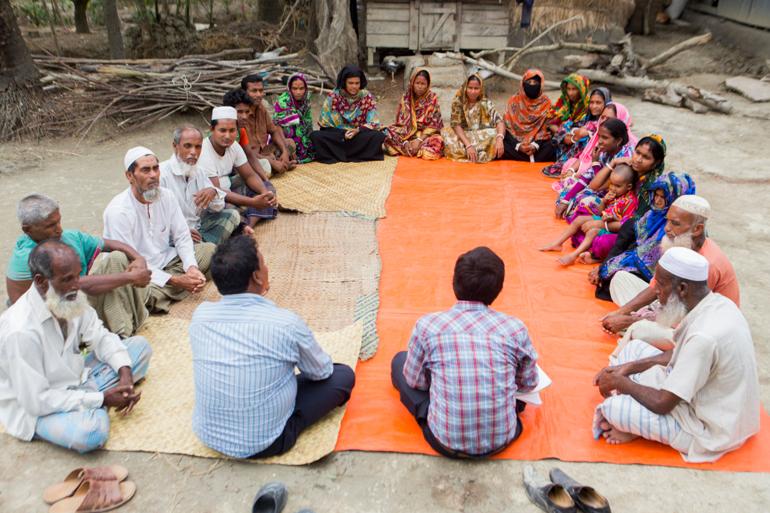
For this reason, the congress features motivational keynotes, success stories and sharing and learning sessions with woman champions to inspire and motivate the women fishers. Guest speakers at this year’s conference also include women and men change makers who have seen improvements in their lives and livelihoods from the ECOFISH-BD project’s interventions, and conservation champions from local communities.
In 2016, the first year the event was run, the 220 event participants including 100 fisher women heard from Nishat Majumder, the first Bangladeshi women to scale Mount Everest, the world’s tallest mountain.
The 2017 congress will also be a platform for creating Fisher Women Associations. Once formed, these associations will promote greater compliance with the government’s rules and regulations on fishing, and ensure fair distribution of incentives such as the government compensation package to fishers, irrespective of gender.
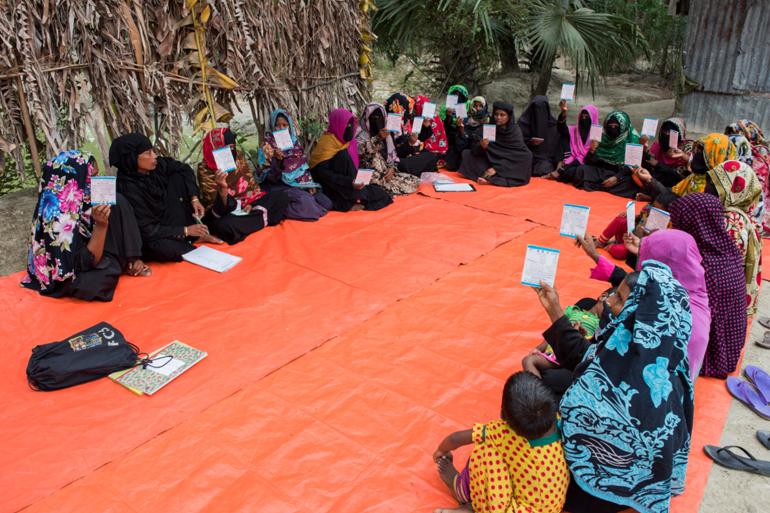
The congress is just one of the project’s many initiatives designed to promote gender equity.
Since 2015, over 80 women’s savings groups have been established to provide households, and women in particular, with access to low-cost credit.
Women are receiving training to generate alternative incomes from activities such as fish farming, doll making or raising goats. This desire to develop alternative incomes that suits women’s preferences was a need that women themselves identified during the community profiling and gender analysis at the start of the ECOFISH-BD project.
Of the 279 hilsa conversations groups formed in 81 villages since 2015, women make up 30 percent of members – the project’s minimum target for women participation. By 2019, 500 groups will be formed.
Together, these efforts are helping improve gender equity and women empowerment in the villages, explains Dr. Wahab.
“The involvement of women in conservation groups supports efforts to increase the voice of women through income generation that boosts status and influence in household and community decision making, and through their participation in the congress.”
“These activities will enable around 50,000 women from fisher families to benefit from the ECOFISH-BD project, along with 50,000 men directly, with a multiplier effect of another 200,000 men and women – a large and lasting impact,” he says.